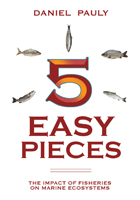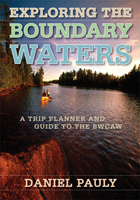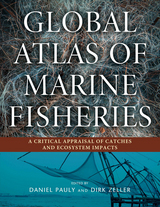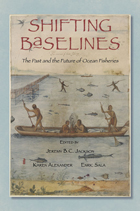
Daniel Pauly, a well-known fisheries expert who was a co-author of all five articles, presents each original article here and surrounds it with a rich array of contemporary comments, many of which led Pauly and his colleagues to further study. In addition, Pauly documents how popular media reported on the articles and their findings. By doing so, he demonstrates how science evolves. In one chapter, for example, the popular media pick up a contribution and use Pauly’s conclusions to contextualize current political disputes; in another, what might be seen as nitpicking by fellow scientists leads Pauly and his colleagues to strengthen their case that commercial fishing is endangering the global marine ecosystem. This structure also allows readers to see how scientists’ interactions with the popular media can shape the reception of their own, sometimes controversial, scientific studies.
In an epilog, Pauly reflects on the ways that scientific consensus emerges from discussions both within and outside the scientific community.


The Global Atlas of Marine Fisheries is the first and only book to provide accurate, country-by-country fishery data. This groundbreaking information has been gathered from independent sources by the world’s foremost fisheries experts, and edited by Daniel Pauly and Dirk Zeller of the Sea Around Us Project. The Atlas includes one-page reports on 273 countries and their territories, plus fourteen topical global chapters. National reports describe the state of the country's fishery, by sector; the policies, politics, and social factors affecting it; and potential solutions. The global chapters address cross-cutting issues, from the economics of fisheries to the impacts of mariculture. Extensive maps and graphics offer attractive and accessible visual representations.
While it has long been clear that the world’s oceans are in trouble, the lack of reliable data on fishery catches has obscured the scale, and nuances, of the crisis. The atlas shows that, globally, catches have declined rapidly since the 1980s, signaling an even more critical situation than previously understood. The Global Atlas of Marine Fisheries provides a comprehensive picture of our current predicament and steps that can be taken to ease it. For researchers, students, fishery managers, professionals in the fishing industry, and all others concerned with the status of the world’s fisheries, the Atlas will be an indispensable resource.

Recent decades have been marked by the decline or collapse of one fishery after another around the world, from swordfish in the North Atlantic to orange roughy in the South Pacific. While the effects of a collapse on local economies and fishing-dependent communities have generated much discussion, little attention has been paid to its impacts on the overall health of the ocean's ecosystems.
In a Perfect Ocean: The State of Fisheries and Ecosystems in the North Atlantic Ocean presents the first empirical assessment of the status of ecosystems in the North Atlantic ocean. Drawing on a wide range of studies including original research conducted for this volume, the authors analyze 14 large marine ecosystems to provide an indisputable picture of an ocean whose ecology has been dramatically altered, resulting in a phenomenon described by the authors as "fishing down the food web." The book:
- provides a snapshot of the past health of the North Atlantic and compares it to its present status
- presents a rigorous scientific assessment based on the key criteria of fisheries catches, biomass, and trophic level
- considers the factors that have led to the current situation
- describes the policy options available for halting the decline
- offers recommendations for restoring the North Atlantic
This is the first in a series of assessments by the world's leading marine scientists, entitled "The State of the World's Oceans." In a Perfect Ocean: The State of Fisheries and Ecosystems in the North Atlantic Ocean is a landmark study, the first of its kind to make a comprehensive, ecosystem-based assessment of the North Atlantic Ocean, and will be essential reading for policymakers at the state, national, and international level concerned with fisheries management, as well for scientists, researchers, and activists concerned with marine issues or fishing and the fisheries industry.

Edited by marine ecologists Jeremy Jackson and Enric Sala, and historian Karen Alexander, the book brings together knowledge from disparate disciplines to paint a more realistic picture of past fisheries. The authors use case studies on the cod fishery and the connection between sardine and anchovy populations, among others, to explain various methods for studying historic trends and the intricate relationships between species. Subsequent chapters offer recommendations about both specific research methods and effective management. This practical information is framed by inspiring essays by Carl Safina and Randy Olson on a personal experience of shifting baselines and the importance of human stories in describing this phenomenon to a broad public.
While each contributor brings a different expertise to bear, all agree on the importance of historical perspective for effective fisheries management. Readers, from students to professionals, will benefit enormously from this informed hindsight.
READERS
Browse our collection.
PUBLISHERS
See BiblioVault's publisher services.
STUDENT SERVICES
Files for college accessibility offices.
UChicago Accessibility Resources
home | accessibility | search | about | contact us
BiblioVault ® 2001 - 2024
The University of Chicago Press









